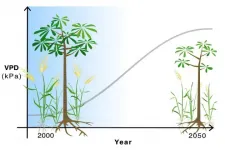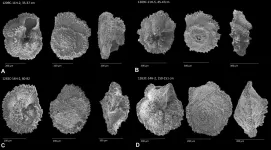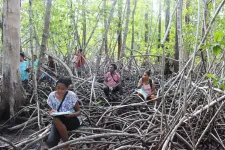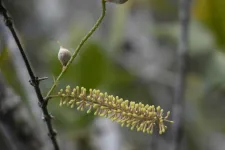Latest research delineates the effectiveness of "quitlines" for smoking cessation
2021-03-08
(Press-News.org) While cigarette smoking continues to be the leading cause of preventable disease, disability and death in the U.S., the evidence base for cessation support has revealed that telephone call centers, or "quitlines," have been a particularly successful intervention, according to the Centers for Disease Control and Prevention (CDC), which recently published a compilation of scientific research in the American Journal of Preventive Medicine.
Titled "The Role of Quitlines in Tobacco Cessation," the supplement is composed of nine peer-reviewed articles and three commentaries presenting the latest science on quitlines' effectiveness for smoking termination. The compilation demonstrates the relevance and importance of call centers as an essential population-level tool designed to increase successful smoking suspension outcomes, and their role as part of a comprehensive approach to tobacco control. Furthermore, it points to shifts in the commercial tobacco product landscape that will require the ongoing improvement and innovation in quitlines' technology to continue to effectively support smokers who want to quit to successfully cease.
According to the CDC, nearly 500,000 U.S. adults die prematurely of smoking tobacco or exposure to second-hand smoke, while over 16 million live with a serious illness caused by smoking each year. Additionally, smoking-related disease among adults costs the U.S. over $300 billion annually, including $170 billion in direct medical care and $150 billion in lost productivity due to premature death.
While cigarette smoking has significantly decreased among U.S. adults since the 1960s, 14 percent were still smokers in 2019, and its prevalence remains high among individuals who are less educated, low-income, LGBT, of a certain race and ethnicity, and people with behavioral health concerns.
"The supplement presents the latest evidence on quitlines from leading tobacco control and prevention researchers and practitioners," said Guest Co-editor Emily F. Gates, an assistant professor of Measurement, Evaluation, Statistics & Assessment at Boston College's Lynch School of Education and Human Development. "It showcases the efforts to customize services to reduce health disparities, recognizes the diverse tobacco product environment, and outlines ways to expand quitlines' reach through technological innovation, such as mobile apps and text messaging. Although compiled prior to the COVID-19 pandemic, it nonetheless reinforces the urgency and value of quitting tobacco, and the benefits of quitlines in facilitating the achievement of that critically important goal."
CDC Researcher Rebecca Glover-Kudon served as co-editor in coordination with a CDC working group and lead editors of the American Journal of Preventive Medicine.
INFORMATION:
ELSE PRESS RELEASES FROM THIS DATE:
2021-03-08
A global observation of an ongoing atmospheric drying -- known by scientists as a rise in vapor pressure deficit -- has been observed worldwide since the early 2000s. In recent years, this concerning phenomenon has been on the rise, and is predicted to amplify even more in the coming decades as climate change intensifies.
In a new paper published in the journal Global Change Biology, research from the University of Minnesota and Western University in Ontario, Canada, outlines global atmospheric drying significantly reduces productivity of both crops and non-crop plants, even under well-watered conditions. The new findings were established on a large-scale analysis covering 50 years of research and 112 plant species.
"When there ...
2021-03-08
Lockdown and other restrictions imposed to control the COVID-19 pandemic have had unseen negative effects on the cognitive capacity and mental health of the population. A study led by the UOC's research group Open Evidence, in collaboration with international universities and BDI Schlseinger Group Market Research, has gauged the impact of the measures taken during the first and second waves of the virus on citizens of three European Union countries. The study concludes that the shock produced by the situation has reduced people's cognitive capacity, leading them to take more risks, ...
2021-03-08
Astronomers have discovered new hints of a giant, scorching-hot planet orbiting Vega, one of the brightest stars in the night sky.
The research, published this month in The Astrophysical Journal, was led by University of Colorado Boulder student Spencer Hurt, an undergraduate in the Department of Astrophysical and Planetary Sciences.
It focuses on an iconic and relatively young star, Vega, which is part of the constellation Lyra and has a mass twice that of our own sun. This celestial body sits just 25 light-years, or about 150 trillion miles, from Earth--pretty close, astronomically speaking.
Scientists can also see Vega with telescopes even when it's light out, which makes ...
2021-03-08
Microscopic fossilized shells are helping geologists reconstruct Earth's climate during the Paleocene-Eocene Thermal Maximum (PETM), a period of abrupt global warming and ocean acidification that occurred 56 million years ago. Clues from these ancient shells can help scientists better predict future warming and ocean acidification driven by human-caused carbon dioxide emissions.
Led by Northwestern University, the researchers analyzed shells from foraminifera, an ocean-dwelling unicellular organism with an external shell made of calcium carbonate. After analyzing the calcium isotope composition of the fossils, the researchers concluded that massive volcanic activity injected large amounts of carbon dioxide into the Earth system, causing global warming and ocean acidification.
They ...
2021-03-08
Artificial intelligence can already scan images of the eye to assess patients for diabetic retinopathy, a leading cause of vision loss, and to find evidence of strokes on brain CT scans. But what does the future hold for this emerging technology? How will it change how doctors diagnose disease, and how will it improve the care patients receive?
A team of doctors led by UVA Health's James H. Harrison Jr., MD, PhD, has given us a glimpse of tomorrow in a new article on the current state and future use of artificial intelligence (AI) in the field of pathology. Harrison and other members of the College of American Pathologists' Machine Learning ...
2021-03-08
In a new paper published in Light: Science & Applications, the group led by Professor Andrea Fratalocchi from Primalight Laboratory of the Computer, Electrical and Mathematical Sciences and Engineering (CEMSE) Division, King Abdullah University of Science and Technology (KAUST), Saudi Arabia, introduced a new patented, scalable flat-optics technology manufactured with inexpensive semiconductors.
The KAUST-designed technology leverages on a previously unrecognized aspect of optical nanoresonators, which are demonstrated to possess a physical layer that is completely equivalent to a feed-forward deep neural network.
"What we have achieved," explains Fratalocchi, "is a technological process to cover ...
2021-03-08
Women are largely being excluded from decisions about conservation and natural resources, with potentially detrimental effects on conservation efforts globally, according to research.
A University of Queensland and Nature Conservancy study reviewed a swathe of published conservation science, investigating the cause and impact of gender imbalance in the field.
UQ PhD candidate and Nature Conservancy Director of Conservation in Melanesia Robyn James said it was no secret that females were underrepresented in conservation science.
"In fact, according to a recent analysis of 1051 individual top?publishing authors in ecology, evolution and conservation research, only 11 per cent were women," Ms James said.
"We analysed more than 230 peer-reviewed articles attempting ...
2021-03-08
One of the world's rarest tree species has been transformed into a sophisticated model that University of Queensland researchers say is the future of plant research.
"Macadamia jansenii is a critically endangered species of macadamia which was only described as a new species in 1991," said Robert Henry, Professor of Innovation at the Queensland Alliance for Agriculture and Food Innovation (QAAFI).
"It grows near Miriam Vale in Queensland and there are only around 100 known trees in existence."
However, with funding from Hort Innovation's Tree Genomics project, and UQ's Genome Innovation Hub Macadamia jansenii has now become the world's most sophisticated plant research model.
Professor Henry said ...
2021-03-08
In a perfect world, what you see is what you get. If this were the case, the job of artificial intelligence systems would be refreshingly straightforward.
Take collision avoidance systems in self-driving cars. If visual input to on-board cameras could be trusted entirely, an AI system could directly map that input to an appropriate action -- steer right, steer left, or continue straight -- to avoid hitting a pedestrian that its cameras see in the road.
But what if there's a glitch in the cameras that slightly shifts an image by a few pixels? If the car blindly trusted so-called "adversarial inputs," it might take unnecessary and potentially dangerous action.
A new deep-learning algorithm developed by MIT researchers is designed to help machines ...
2021-03-08
Cancers that are resistant to radiotherapy could be rendered susceptible through treatment with immunotherapy, a new study suggests.
Researchers believe that manipulating bowel cancers based on their 'immune landscape' could unlock new ways to treat resistant tumours.
Cancers can evolve resistance to radiotherapy just as they do with drugs.
The new study found that profiling the immune landscape of cancers before therapy could identify patients who are likely to respond to radiotherapy off the bat, and others who might benefit from priming of their tumour with immunotherapy.
Scientists at The Institute of Cancer Research, London, in collaboration with the University of Leeds and The Francis Crick ...
LAST 30 PRESS RELEASES:
[Press-News.org] Latest research delineates the effectiveness of "quitlines" for smoking cessation




